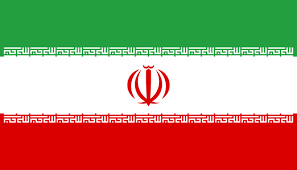Language/Iranian-persian/Grammar/Lesson-15:-Word-order-in-past-tense-sentences/ja
 Հայերէն
Հայերէն Български език
Български език 官话
官话 官話
官話 Hrvatski jezik
Hrvatski jezik Český jazyk
Český jazyk Nederlands
Nederlands English
English Suomen kieli
Suomen kieli Français
Français Deutsch
Deutsch עברית
עברית हिन्दी
हिन्दी Magyar
Magyar Bahasa Indonesia
Bahasa Indonesia Italiano
Italiano 日本語
日本語 Қазақ тілі
Қазақ тілі 한국어
한국어 Lietuvių kalba
Lietuvių kalba Νέα Ελληνικά
Νέα Ελληνικά Şimali Azərbaycanlılar
Şimali Azərbaycanlılar Język polski
Język polski Português
Português Limba Română
Limba Română Русский язык
Русский язык Српски
Српски Español
Español العربية القياسية
العربية القياسية Svenska
Svenska Wikang Tagalog
Wikang Tagalog தமிழ்
தமிழ் ภาษาไทย
ภาษาไทย Türkçe
Türkçe Українська мова
Українська мова Urdu
Urdu Tiếng Việt
Tiếng ViệtHeading level 1[編集 | ソースを編集]
Welcome to lesson 15 of the Complete 0 to A1 Iranian Persian Course! In this lesson, you will learn how to form sentences in the past tense and to use time expressions and adverbs.
Heading level 2: Word order in past tense sentences[編集 | ソースを編集]
In Iranian Persian, the word order in past tense sentences is as follows:
Subject + Object + Verb
For example:
| Iranian Persian | Pronunciation | Japanese |
|---|---|---|
| من دیروز کتاب خواندم. | Man diruz ketab khandidam. | 昨日、私は本を読みました。 |
| تو امروز ماشین شستی. | To emrooz mashin shasti. | 今日、あなたは車を洗いました。 |
| او هفته پیش خانه خرید. | U haft-e pish khane kharid. | 彼は先週家を買いました。 |
As you can see from the examples above, the past tense marker -د- (-d-) is added to the end of the verb. This marker is called the past tense marker.
Heading level 3: Time expressions[編集 | ソースを編集]
To indicate when an action took place, you can use time expressions. In Iranian Persian, time expressions usually come at the beginning or the end of a sentence.
Here are some common time expressions:
- دیروز (diruz) - yesterday
- امروز (emrooz) - today
- فردا (farda) - tomorrow
- هفته گذشته (haft-e gozashte) - last week
- هفته آینده (haft-e ayande) - next week
- ماه گذشته (mah-e gozashte) - last month
- ماه آینده (mah-e ayande) - next month
- سال گذشته (sal-e gozashte) - last year
- سال آینده (sal-e ayande) - next year
For example:
- دیروز من به سینما رفته بودم. (Diruz man be sinema raft-e boodam.) - Yesterday I had gone to the cinema.
- او امروز صبح از خواب بیدار شد. (U emrooz sobh az khwab bidar shod.) - He woke up from sleep this morning.
- بعد از غذا خواندن، فردا به باغچه میرویم. (Bad az ghaza khwandan, farda be baghcheh miravim.) - After eating, we will go to the garden tomorrow.
Heading level 3: Adverbs[編集 | ソースを編集]
Adverbs are words that modify verbs, adjectives, or other adverbs. In Iranian Persian, adverbs usually come before the verb.
Here are some common adverbs:
- خوب (khoub) - well
- بد (bad) - badly
- زیاد (ziyad) - much, a lot
- کم (kam) - little, few
- همیشه (hamishe) - always
- اکثراً (aksar-an) - mostly
- گاهی (gahi) - sometimes
- بعضی وقتها (bazivaght-ha) - sometimes
For example:
- من خوب خواندم. (Man khoub khandidam.) - I read well.
- او بد نوشت. (U bad nvesht.) - He wrote badly.
- او زیاد میخندید. (U ziyad mikhandid.) - He laughed a lot.
- تو کم خوردی. (To kam khordi.) - You ate little.
- او همیشه به دانشگاه میرود. (U hamishe be daneshgah miravad.) - He always goes to university.
- اکثراً من از خواندن کتابهای روانشناسی خوشم میآید. (Aksar-an man az khwandan-e ketab-hay-e ravanshenasi khosh-am miayad.) - Mostly I enjoy reading psychology books.
- گاهی من به آسمان نگاه میکنم. (Gahi man be aseman negah mikonam.) - Sometimes I look at the sky.
- بعضی وقتها او خیلی سریع حرف میزند. (Bazivaght-ha u kheyli sari harf mizanad.) - Sometimes he talks very fast.
Heading level 1[編集 | ソースを編集]
That's it for lesson 15! You now know how to form sentences in the past tense and how to use time expressions and adverbs. Practice these concepts to improve your Iranian Persian skills. See you in the next lesson!
その他のレッスン[編集 | ソースを編集]
- 0からA1コース → 文法 → レッスン14:規則動詞の過去形
- 初級0からA1コース → 文法 → レッスン20:命令法の使用
- 0からA1へのコース → 文法 → レッスン8:直接目的語代名詞
- 初級0からA1コース → 文法 → レッスン21:不定詞の使用
- 初級0からA1コース → 文法 → レッスン9:所有格代名詞
- 初心者向け0からA1コース → 文法 → レッスン22:複合文と接続詞
- 0からA1コース → 文法 → レッスン5:規則動詞の現在形の活用
- 0 to A1 Course
- 0からA1レベルコース → 文法 → レッスン3:ペルシア語の文章における語順
- Lesson 4: Present tense conjugation of the verb to be


